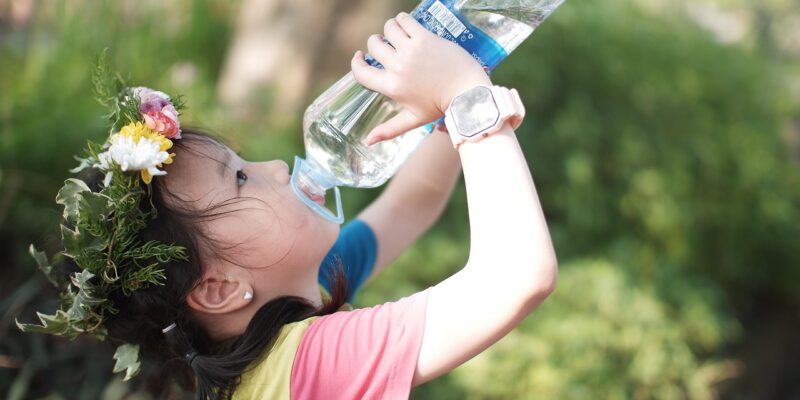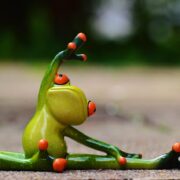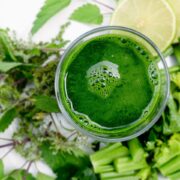Water is the essence of life. It makes up about 60% of the human body and plays a crucial role in every biological function. Yet, many people underestimate the power of hydration, neglecting to drink enough water throughout the day. Dehydration can lead to fatigue, headaches, poor digestion, and even more serious health issues.
Hydration is not just about quenching thirst. It is about optimizing body function, boosting energy and enhancing mental clarity. This in turn improves health. In this article, we will explore the importance of proper hydration.
1. Why Hydration Matters: The Science Behind Water’s Role in the Body
Water is involved in nearly every bodily function. From digestion to circulation, hydration keeps us alive and functioning at our best.
A. The Essential Functions of Water in the Body
Water supports:
Cellular Function – Every cell relies on water to carry nutrients and oxygen.
Temperature Regulation – Through sweating, water helps cool the body.
Joint Lubrication – Water keeps joints flexible and reduces the risk of injury.
Digestion and Nutrient Absorption – Helps break down food and transport nutrients.
Detoxification – Water flushes out toxins through urine and sweat.
Cognitive Function – Hydration improves focus, memory, and mood.
Without enough water, these essential functions slow down, leading to dehydration and health complications.
B. How Much Water Do You Really Need?
The 8×8 rule (eight 8-ounce glasses per day) is a general guideline, but hydration needs vary based on activity level, climate, and health.
The Institute of Medicine (IOM) recommends:
Men: About 3.7 liters (125 ounces) per day
Women: About 2.7 liters (91 ounces) per day
Factors that increase water needs:
Exercise and sweating
Hot, humid climates
High-protein or high-sodium diets
Pregnancy and breastfeeding
Listen to your body and drink water often to stay hydrated.
2. The Health Benefits of Proper Hydration
There are many benefits to staying hydrated here are just some of them:
A. Boosts Energy and Prevents Fatigue
Even mild dehydration (1-2% loss of body weight in water) can cause fatigue, sluggishness, and reduced endurance. When properly hydrated, your blood delivers oxygen efficiently, keeping you alert and energized.
Tip: If you feel drained or sluggish, try drinking a glass of water before reaching for caffeine.
B. Enhances Brain Function and Mental Clarity
The brain is about 75% water, and dehydration can significantly impact cognitive function. Studies show that even mild dehydration can impair concentration, memory, and mood.
Hydration benefits for the brain:
Improves focus and problem-solving
Reduces headaches and brain fog
Enhances mood and reduces stress
Tip: Start your day with a full glass of water to wake up your brain and jumpstart mental performance.
C. Supports Digestion and Prevents Constipation
Water is essential for breaking down food, absorbing nutrients, and eliminating waste. Dehydration can lead to constipation and bloating.
Hydration and digestion: ✔ Water helps dissolve fiber for smooth bowel movements. ✔ Supports stomach acid production for better food breakdown. ✔ Flushes out waste and toxins from the intestines.
Tip: Pair fiber-rich foods (fruits, veggies, whole grains) with plenty of water to keep digestion smooth.
D. Promotes Clear, Healthy Skin
Dehydration can cause dry, dull skin, and breakouts. Water helps flush out toxins, maintain skin elasticity, and improve natural glow.
How water benefits the skin: ✔ Hydrates skin cells for a fresh, youthful appearance. ✔ Reduces acne by flushing out toxins. ✔ Prevents premature wrinkles and dryness.
Tip: Drink lemon-infused water for added vitamin C and skin benefits.
E. Regulates Body Temperature and Prevents Overheating
Water plays a key role in thermoregulation (body temperature control). It absorbs heat and releases it through sweat, preventing overheating.
When to hydrate:
During exercise and physical activity
In hot and humid weather
If experiencing fever or illness
Tip: Drink electrolyte-rich water (with a pinch of sea salt or coconut water) to replenish minerals lost in sweat.
F. Supports Heart Health and Circulation
Staying hydrated reduces strain on the heart by keeping blood thin and circulation efficient. Dehydration can lead to higher blood pressure and increased risk of heart disease.
How hydration helps: ✔ Improves blood flow and oxygen delivery. ✔ Prevents excess strain on the heart. ✔ Reduces the risk of kidney stones and urinary tract infections (UTIs).
Tip: Drink water before, during, and after workouts to keep circulation optimal.
3. Signs of Dehydration and How to Prevent It
Dehydration can sneak up quickly, and by the time you feel thirsty, you may already be mildly dehydrated.
A. Common Signs of Dehydration
Dark yellow urine (should be pale yellow)
Dry mouth and lips
Fatigue and dizziness
Headaches and brain fog
Muscle cramps
Increased heart rate
B. Hydration Tips to Stay on Track
- Carry a reusable water bottle – A visual reminder helps increase intake.
- Drink water before meals – Helps digestion and prevents overeating.
- Set hydration reminders – Use apps like MyWater or WaterMinder.
- Eat water-rich foods – Cucumbers, watermelon, oranges, and celery provide extra hydration.
- Limit dehydrating drinks – Reduce coffee, soda, and alcohol intake.
4. Debunking Hydration Myths
Myth #1: “You Only Need to Drink When You’re Thirsty”
Fact: By the time you feel thirsty, you may already be dehydrated. It’s best to drink consistently throughout the day.
Myth #2: “Drinking More Water Always Leads to Better Health”
Fact: While hydration is necessary, excessive water intake can dilute electrolytes. This can lead to hyponatremia (low sodium levels). excessive water intake can be described as 4-5 litres quickly.
Myth #3: “Caffeinated Drinks Don’t Count Towards Hydration”
Fact: While caffeine has a mild diuretic effect, coffee and tea still contribute to daily fluid intake.
Myth #4: “Bottled Water Is Always Better Than Tap Water”
Fact: Many municipal tap waters meet strict safety regulations and contain essential minerals. Filtered tap water is often a great alternative.
5. Making Hydration a Daily Habit
Morning: Drink 1-2 glasses of water upon waking.
During Meals: Sip water to aid digestion.
Before Exercise: Hydrate 30 minutes before physical activity.
Throughout the Day: Carry a water bottle as a reminder.
Before Bed: Drink a small glass to prevent dehydration overnight.
Pro Tip: Use a water-tracking app or a marked water bottle to stay accountable!
Water is life and the Key to Optimal Health
Water is more than just a drink—it’s your best ally for energy, brainpower, digestion, and longevity. Staying hydrated isn’t difficult, but it requires mindful effort. By making simple changes, you can experience increased vitality and sharper focus
🌟 Take Action Today:
- Start your day with a glass of water.
- Keep a bottle with you at all times.
- Replace sugary drinks with infused water.
- Eat more hydrating foods.
Your body thrives when properly hydrated—drink up and feel the difference! 💧✨














Comments